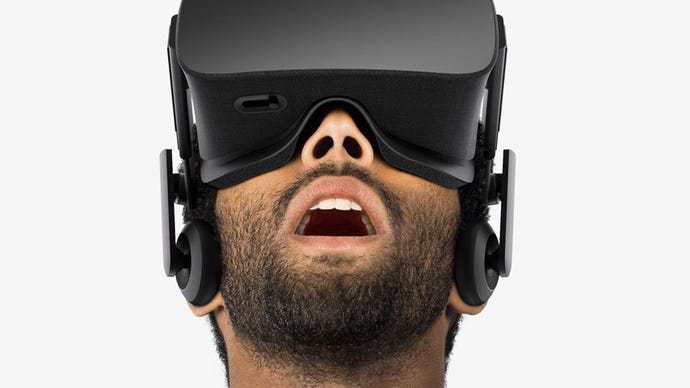$600 is not Oculus Rift's biggest problem: it's the lack of a killer app
On its own, $600 is a lot of money. $600 and a higher-end PC is a massive commitment. Strangely though, this isn’t what’s putting Sherif Saed off the Oculus Rift.
I’ve been watching online reactions to Oculus’ $600 Rift announcement for days. Those OK with the price seem to see it as an expensive PC monitor or GPU upgrade, thinking it’s nothing out of the ordinary for the PC crowd, most of whom probably already have PCs equipped with the minimum specs.
The majority, however, were caught off guard. After being told for a long time to expect something in the $350 range, the actual price only made it easier for them to shrug off VR as yet another technical marvel unattainable by most. Some of us hoped Sony would swoop in with another E3 2013 moment, as it did after Microsoft first put a price on the current generation of consoles. A few even went as far as saying the $600 tag is but a sullen onset to a soon-to-be short-lived fad.
I wasn't particularly fazed by the price, but neither was I surprised to see many in shock. I've always expected VR on PC to be more expensive than its console counterpart. I never saw a problem with that - and there shouldn't be.
Of course the first modern VR headset, the one aimed initially at PC enthusiasts, will be expensive. All technical innovations, especially ones that are pushed to PC gamers first, always are. G-Sync, 144Hz/4K monitors, Quad-core CPUs and a million other perks the PC crowd enjoyed for years before they went mainstream fall into this category. There will always be cheaper, more streamlined options for those who can’t afford high-end PC gaming, or simply don’t want to deal with it.
While everyone was busy arguing if VR is the future or if it’s DOA, nobody stopped to notice why the headset’s price is dominating the ether: there’s really nothing else about it we can talk about. Nothing to distract us. There’s no "but". There’s no killer app we dream of playing. There's no "it" games.
This current round of shouting about the price-tag is nothing more than a fever dream. All we'll remember, if we remember anything about this at all, are game and tech journalists losing their s**t over a random number.
Let’s imagine the Rift as yet another PC upgrade you think you need, and one you could feasibly save up for. It’s the way those with VR-capable PCs think, and that’s the sort of crowd always up to date on the latest GPU and CPU advancements.
It’s not the "build me a PC for the price of a console" gamer, and it’s certainly not the one who couldn't name two GPU/CPU models of the top of his head. For this enthusiast crowd, there’s always a reason, and a story, behind every upgrade. These upgrades are saved up for, and ultimately justified, because there’s something they want. There’s always that one thing that transcends money and makes the purchase justifiable.
Having counted myself among that crowd for years, I can tell you there was always a game - or a number of them - that made me commit to an upgrade. It’s all I could think about, even if the price was too much. It was Battlefield 2, then it was Crysis, then Battlefield 3 and the list goes on and on. Eve: Valkyrie looks cool, but not $600 cool, and I don’t want to play a platformer in VR.
I've not attended any of the demos. I don’t know if the headset will work with my glasses, and I don’t know if I will be among the 1% that gets motion sick after ten minutes of play. There are a lot of things I don’t know. Things Oculus could've led with, instead of leading with a show-stopping price.
It’s a lot harder to demonstrate how cool a VR game can be than it is to show you Crysis at 4K/60fps, I will concede. But there really hasn't been much "showing" of anything. There’s a laundry list of problems developers and those who cover games will need to solve. The most pressing one is how to convince us the technology is worth shelling out for without having to try it.
I don’t believe this is an impossible problem. After all, not everyone has a Best Buy or GameStop near them where they can try one on. Most purchases, I have to think, will be done online, by someone who got excited because of something they saw. That customer can’t exist when all we have to go on is people telling us, "you really need to try this." At least not when the thing is $600.
Imagine if Oculus had a hype train going from 2015 and leading up to pre-orders. Game footage, regular people telling their experiences, Oculus touting things "only possible" in VR, developers with ideas that can last more than the length of a demo. I have a hard time believing the price hit would have been as strong as it was if people had a "but have you seen Titanfall?" moment.
Is $600 too much? It doesn't really matter. What is relevant, however, is that Oculus is missing the game.




